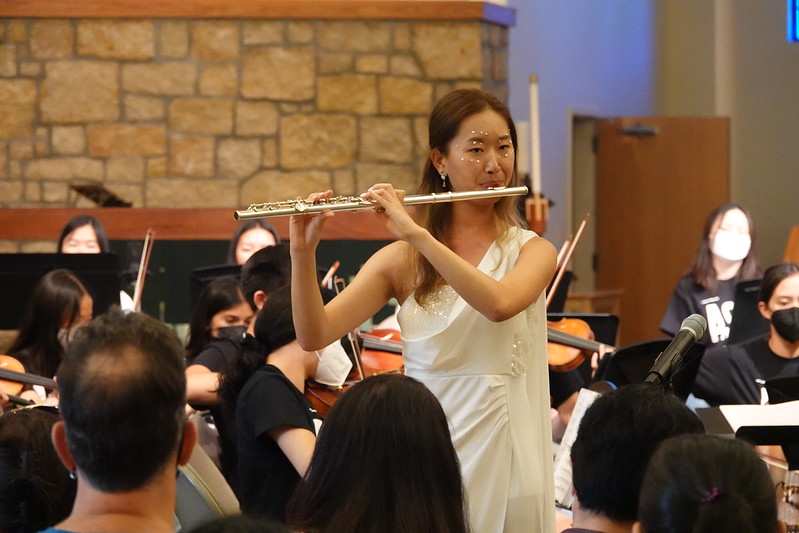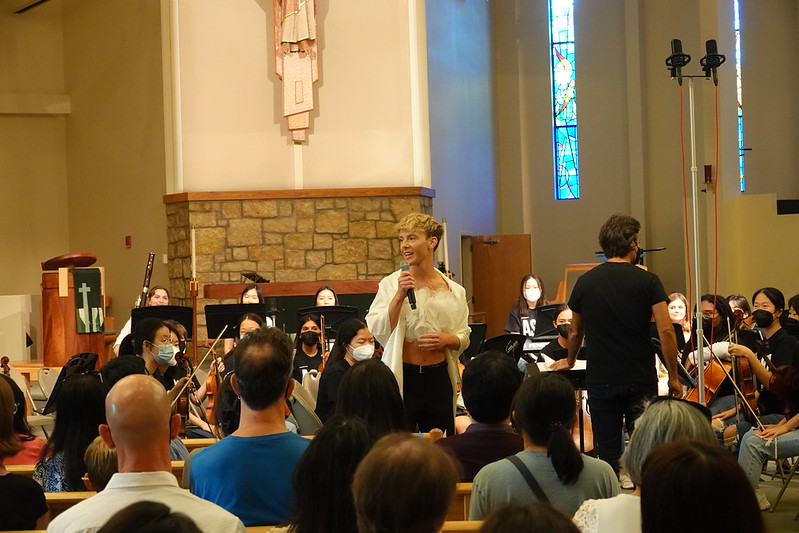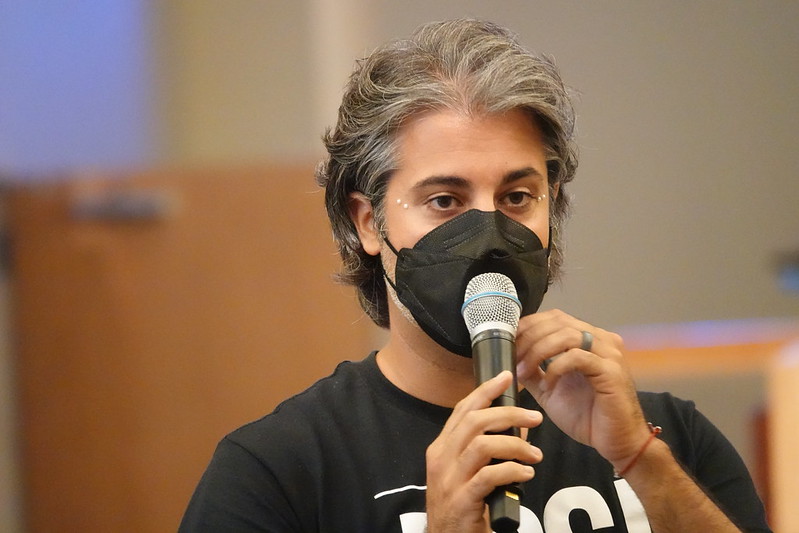Your Clouds are My Snow
Cheryl Zhang (2022)Your Clouds are my Snow by Cheryl Zhang :: Supported by FRFF (#2022-049) from STUDIO for Creative Inquiry on Vimeo.
Your Clouds are my Snow is a new flute concerto written by Matthew Kaminski and premiered by Cheryl Zhang, in collaboration with the Maryland Classic Youth Orchestras All Star String Intensive on July 15, 2022 in Silver Spring, Maryland.
Your clouds are my snow, expresses how something you cannot control, inflicted by a superior figure or system causes stress, damage, and heartbreak. In this metaphor, snow represents beauty and perseverance, yet also mourning. The second movement of the concerto is a critique on the Euro-centric focus of music education in America and how it can feel disconnecting for the diverse student body that studies classical music every day.
A central theme of the concerto is connecting society together and making people feel less alone. When you travel to a small town and visit for a couple days, you begin to learn pieces of their culture, their day to day activities, how they treat each other, and the qualities that make people who they are. You scrape the surface of a completely new life that you knew nothing about. I wish more people were vulnerable so they could understand others, and slip into the shoes of another person. The world is too big to live in your lane, and it is vital to understand our differences.

Matthew started writing the concerto in the summer of 2021 and finished it in the spring of 2022. Cheryl knew she wanted to premiere the concerto in her hometown and collaborate with her former orchestra conductor from high school, Maestro Kristofer Sanz. This project was in collaboration with the MCYO All Star String Intensive, as well as wind, brass, and percussion instrumentalists recruited for the concerto from mostly MCYO alumni. The concerto was rehearsed for one week before the premiere at the Lutheran Church of St. Andrew. The premiere was live streamed as well as recorded for Youtube, Apple Music, and Spotify releases. This project was supported in part by funding from the Carnegie Mellon University Frank-Ratchye Fund For Art @ the Frontier microgrant #2022-049, the BXA program at Carnegie Mellon, and Chapman University’s SGA Grant.

